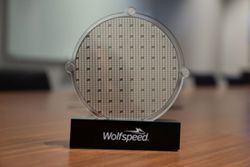
SEOUL (Reuters) - A fire at a South Korean lithium battery maker in June that killed 23 people occurred as the company raced to produce batteries to meet a deadline without taking action to address signs of dangerous quality failures, police said on Friday.
Nine other workers were injured in the fire at battery maker Aricell, majority owned by S-Connect. Calls to Aricell seeking comment following the police announcement were not immediately answered.
Police have been investigating the blaze, which was one of South Korea's deadliest industrial accidents in recent years, over suspected safety violations after ordering a halt of operations.
The company had failed a quality inspection in April for batteries that were intended to be supplied to the country's military and subsequently ramped up production to make up the backlog to meet a deadline, police official Kim Jong-min said.
It hired temporary and unskilled workers, contributing to a jump in product defect rates, including overheating of finished batteries, but did not take action to contain safety risks, Kim told a news conference.
"The accident occurred as the company pushed ahead without taking measures despite problems in various steps in the production process," he said.
The high number of casualties was due to a lack of emergency escape training, Kim said. The workers who were killed had missed a 37-second window to escape, he said.
Security camera footage showed the fire sparking from a stack of batteries and quickly engulfing the factory where 35,000 lithium batteries were stored.
The spread of toxic smoke probably rendered workers unconscious within seconds, fire officials have said.
Seventeen of those who died were Chinese, and one was Laotian. The rest were South Koreans.
Soon after the fire, Aricell CEO Park Soon-kwan had offered condolences to the workers who were killed and apologised to everyone who had been affected by the accident.
Park said at that time the company had complied with all required safety precautions and training, but pledged to take part in the probe and ensure there could be no repeat of such an accident.
Set up in 2020, Aricell has 48 full-time employees and makes lithium primary batteries for sensors and radio communication devices.
The company had supplied batteries to the military for use in some communication and cryptography devices, a spokesperson for South Korea's defence procurement agency has said.
(Reporting by Jack Kim and Heekyong Yang; Editing by Ed Davies)


































